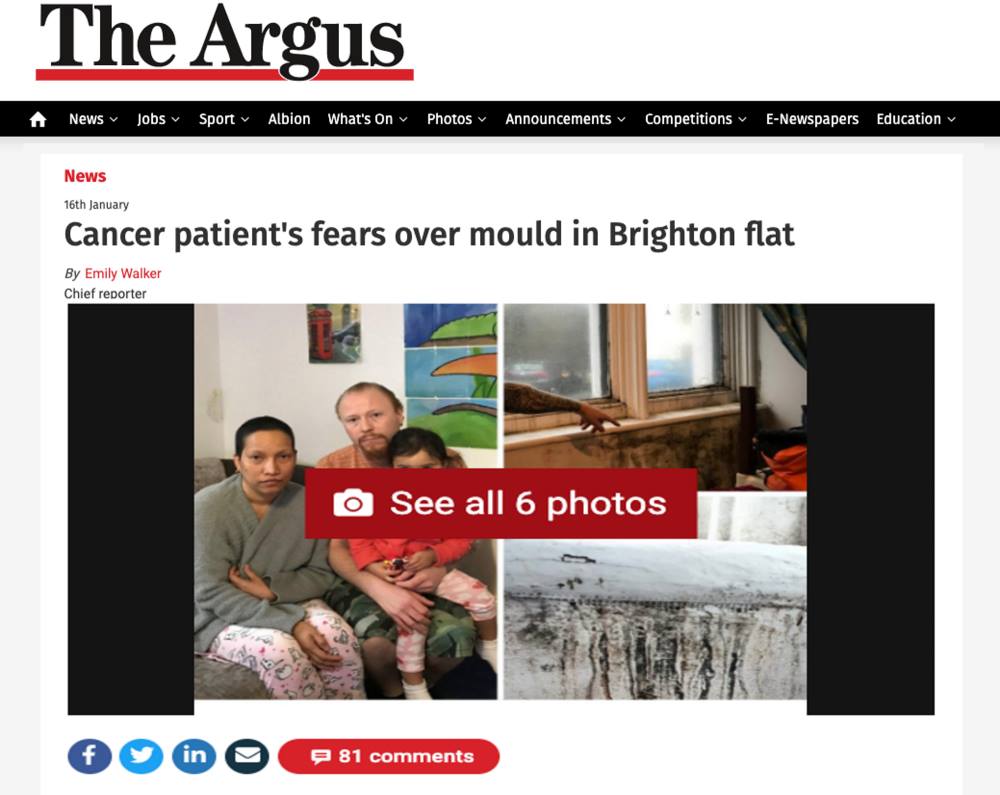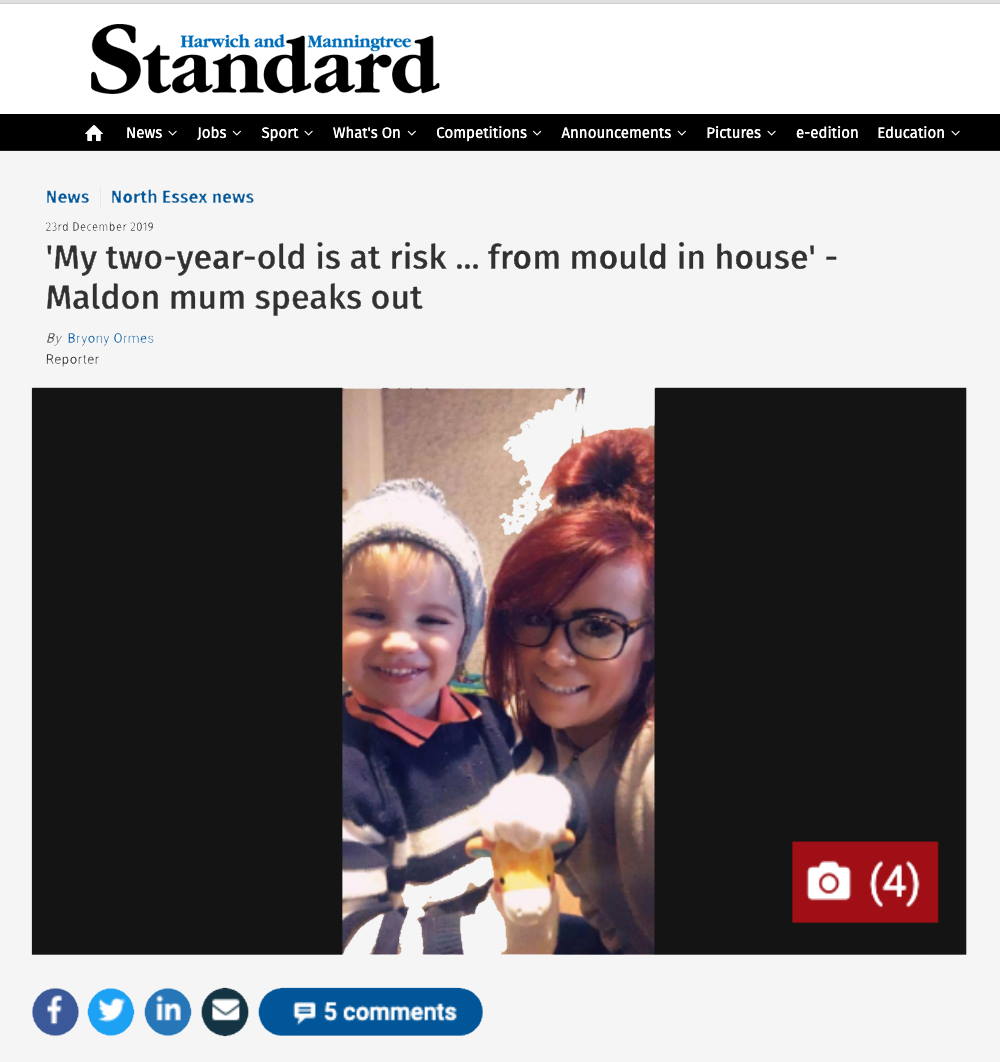We use cookies to help improve our website and personalise your experience. To find out more about how to manage these cookies, please see our cookie policy.
>

By Ruth MacEachern
Product Manager
The term ‘rogue landlord’ is widely understood in the lettings industry to describe a landlord who knowingly flouts their obligations by renting out unsafe and substandard accommodation to tenants, many of whom may be vulnerable. With today’s fast paced lifestyle and access to social media it’s now easier than ever to get a bad reputation.
As a landlord you have a list of legal responsibilities you must adhere to. Before a tenancy is started you need to complete a right to rent check, investigating any adults wishing to rent your property are legally allowed to live in the UK. Also, at the start of the tenancy you must provide your new tenants with an energy performance certificate and a gas safety certificate. Additionally, you must place the tenants deposit in a deposit protection scheme.
During a tenancy if your tenant has any issues or needs to report a fault or repair you need to establish a clear and concise process. For example, you could create an email account like KarenLandlord@gmail.com and advise your tenant to email all queries, repair requests etc to that and give a reply time of 24 hours. Of course, this isn’t appropriate for an emergency situation and you’ll need a different process. For example, if you have a relationship or agreement with a plumber that responds to out-of-hours or emergency calls, you can give the tenant their phone number. Not responding to repair requests or ignoring tenants in distress is a very big factor when it comes to being known as a rogue landlord.
If you feel you can’t commit to a process or concerned you can’t respond to emergency situations in an appropriate timescale, you may want to consider using a letting agent as an intermedium. The letting agent will provide the tenant with a process which you can also agree on or alter as you see fit. Using a letting agent will also take care of other necessities such as reference checking and deposit however, this does come at a cost.
Throughout a tenancy you must also keep up to date with certain compliances, for example you will need to arrange a gas safety check every 12 months. Additionally, you will need to ensure all wiring and electrical appliances are safe so PAT testing is recommended. As a landlord you must also provide smoke alarms on each floor and carbon monoxide detectors.
During any tenancy you are not allowed to let yourself into the property, if you need to enter the property you must provide the tenant with 24 hour’s notice. Landlord harassment is another big rogue landlord attribute and a criminal offence so ensure you avoid it.
Landlord Harassment includes;
It could also be harassment if your landlord enters your home without your permission or send builders in without notice or at antisocial hours.
Harassment can be committed by someone else - for example the landlord's family or letting agent.
The most common tenant complaints
A boiler breakdown/boiler issues – Nobody wants to be left with no hot water and a freezing cold home, least of all your tenants. Ensure to carry out regular boiler maintenance and it is advisable to have a form of boiler cover so any issues can be resolved as quickly as possible.
White goods – If you provide any of these then it’s your responsibility to resolve any issues that come up and replace if the issue isn’t fixable. If you scrimp on white goods, you’re more likely to experience issues. A more expensive model is a bigger cost initially but may save you money in the long run if they last longer and through more tenancies
Returning Deposits – Another common complaint is the length of time taken to return a tenant’s deposit and the process involved. To ensure a speedy process book a meeting in with the tenant to perform an inventory check and discuss the return of the deposit. Discrepancies such as wear and tear can complicate this. It’s fairly subjective so can cause disputes when a tenant claims wear and tear but a landlord claims damage. A third party, professional inventory clerk will have the knowledge to discern between fair wear and tear and damage so it’s important you get an inventory carried out on commencement of the tenancy and at the end. A deposit scheme adjudicator will take into account the original condition of the property and items as well as the reasonable expected lifetime usage.
Damp and Mould – This is probably the most controversial but also the worst complaint. Damp and mould are such huge visual factors as a few photos on social media will go a long way, they also get picked up by newspapers.


Damp and mould are very big factors that can land you with the rogue landlord title. Disputes often arise with who is to blame, the best course of action is to enlist a third-party, un-biased professional opinion. This professional can ascertain whether there is a structural issue with the property or the source of the excess moisture. Whilst it is true that living conditions such as; drying clothes inside frequently, taking long showers and keeping windows closed will contribute, not having effective ventilation in the first instance is a major contributing factor.
Positive Input Ventilation (PIV) systems create fresh and healthy living environments by supplying fresh, filtered air into a property at a continuous rate throughout a property and is our most popular method of whole house ventilation.
Energy recovery ventilation systems provide a controlled way of ventilating a home while minimising energy loss. They reduce the costs of heating ventilated air in the winter by transferring heat from the warm inside exhaust air to the fresh (but cold) outside supply air.
Positive Input Ventilation (PIV) is a whole house air ventilation system that works by drawing in fresh, filtered air into a property from outside. These can be either installed in a loft space or on a wall in a flat or apartment. They ensure that a continuous supply of air is supplied into the home to eliminate or significantly reduce condensation.
The government are also planning to open up it’s rogue landlord database to prospective tenants, as part of proposals to give greater protection to renters. Tenants will be able to to look up their landlords and letting agents by name on the database to check their track records, with blacklisting possible for sex and drugs offences as well as failing to provide proper accommodation.
There are more than 11 million private renters in England across 4.5m households, according to English Housing Survey figures, and the percentage has doubled since 2002 from 10% to 19%. It is imperative to you as a landlord to ensure you are providing a safe, healthy and welcoming environment for your tenants and that you can resolve any issues in a timely and efficient manner. Acting now will put protection in place for the future and will safeguard your reputation as a landlord so you can carry on having tenants in your properties.
© EnviroVent Ltd 2024. All right reserved. Part of S&P Group.